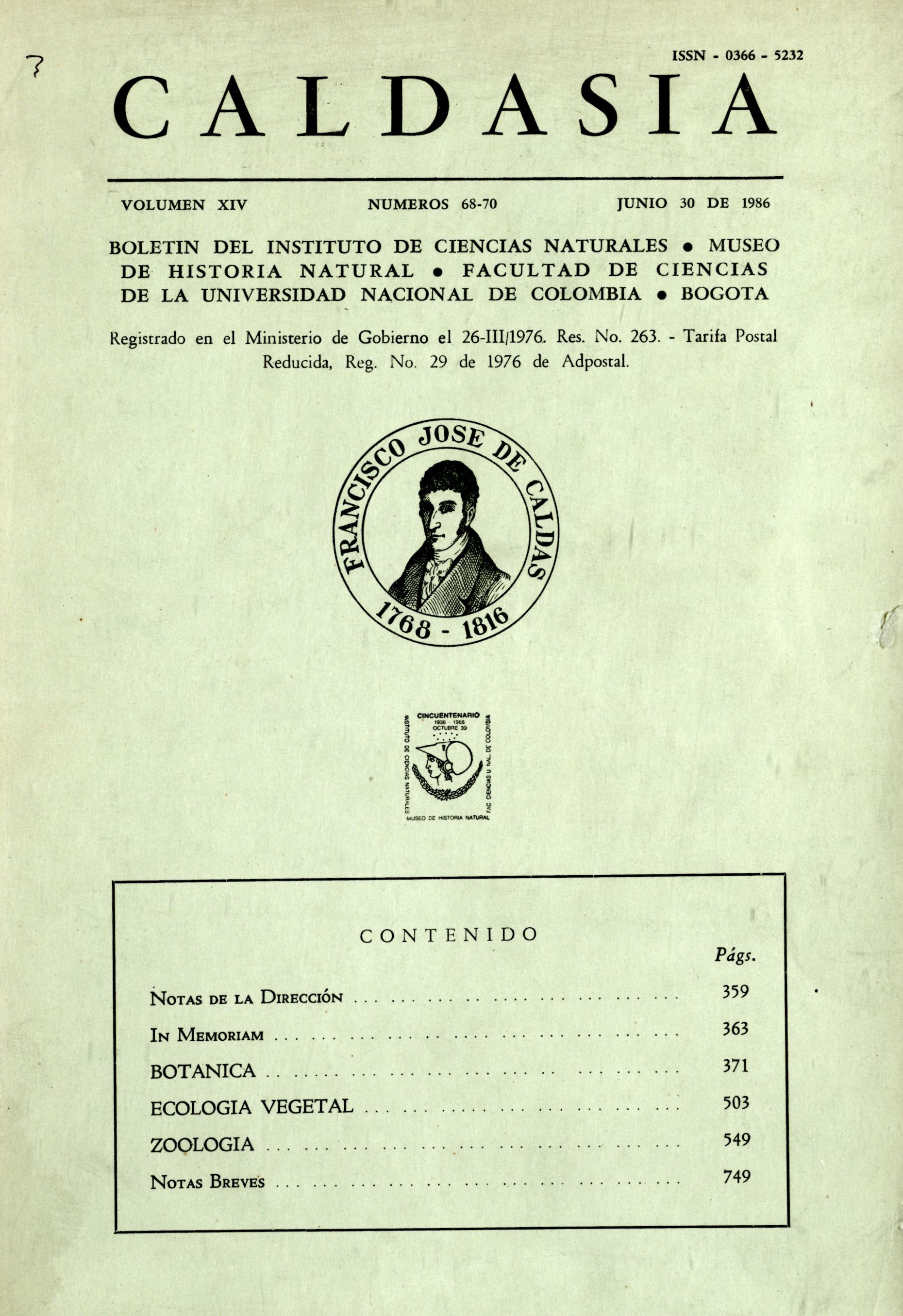Staurastrum Volans Var. Fuquenense Nov. Var., An interesting desmid taxon in the Phytoplankton of laguna Fúquene (Colombia)
Keywords:
Staurastrum Volans Var., Fuquenense Nov. Var., Phytoplankton, S. volans (en)Staurastrum Volans Var., Fuquenense Nov. Var., Phytoplankton, S. volans, fitoplancton (es)
Downloads
Of Staurastrum volans W. & G. S. West, previously only known from Africa, a variety fuquenense COESEL is newly described from laguna Fúquene in the Colombian Andes. Judging from the ecological data of the localities in Colombia and from those recorded from African habitats, Staurastrum volans may be characterized ecologically as a planktonic desmid species that is well adapted to neutral to somewhat alkaline, eutrophic and unstable habitats.
Se describe una nueva variedad de la laguna de Fuquene situada en los Andes de Colombia, perteneciente a la especie Staurastrum volans W. & G. S. West, conocida hasta ahora solamente de Africa. A juzgar por los datos ecológicos de las localidades colombianas y de las registradas en los hábitat africanos, S. volans puede caracterizarse ecológicamente como una especie planctónica de desmidias, bien adaptada a medios eutróficos e inestables, cuyo pH osciló entre neutro a ligeramente alcalino
How to Cite
APA
ACM
ACS
ABNT
Chicago
Harvard
IEEE
MLA
Turabian
Vancouver
Download Citation
Article abstract page views
Downloads
License
Copyright (c) 1986 Caldasia

This work is licensed under a Creative Commons Attribution 4.0 International License.
Authors who publish with this journal agree to the following terms:
- Authors retain copyright and grant the journal right of first publication with the work simultaneously licensed under a Creative Commons Attribution License that allows others to share the work with an acknowledgement of the work's authorship and initial publication in this journal.
- Authors are able to enter into separate, additional contractual arrangements for the non-exclusive distribution of the journal's published version of the work (e.g., post it to an institutional repository or publish it in a book), with an acknowledgement of its initial publication in this journal.
- Authors are permitted and encouraged to post their work online (e.g., in institutional repositories or on their website) prior to and during the submission process, as it can lead to productive exchanges, as well as earlier and greater citation of published work (See The Effect of Open Access).





























